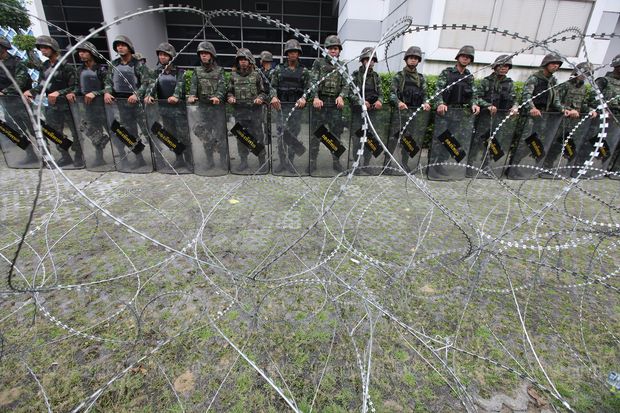
People seeking to stage a public protest must inform authorities 24 hours in advance, and others who think they create public nuisance may petition the Administrative Court or courts of justice under the new public assembly law passed on Friday.
The law also prohibits public gatherings in the 150-metre radius of the royal places of Their Majesties, those of the royal family members, and residences of regents/royal guests.
A public rally cannot be held on the premises of Parliament, Government House and courts unless authorities arrange a spot for it.
As well, it must not block the entrances or exits of government offices, airports, ports, bus or train stations and hospitals or disturb their operations.
Other places deemed off-limits include embassies, consuls and international agencies.
The law requires a rally organisers to notify police officers supervising the area they would like to use as the rally venue at least 24 hours before the assembly.
They must also tell authorities the purpose of the gathering and how long it will last.
If the officials in charge does not allow them to hold a demonstration, the organisers may appeal in writing to their supervisors, who must consider the appeal within 24 hours. The decision of the supervisors shall be deemed final.
Loudspeakers may not be used from midnight to 6am and the protest may not be moved between 6pm and 6am.
Officials will inform the civil court or provincial court in the event of violations so the court can issue an order to end the protest. Failure to abide by the order will result in a jail term and a fine, or both.
The law will take effect when it is promulgated in the Royal Gazette.
